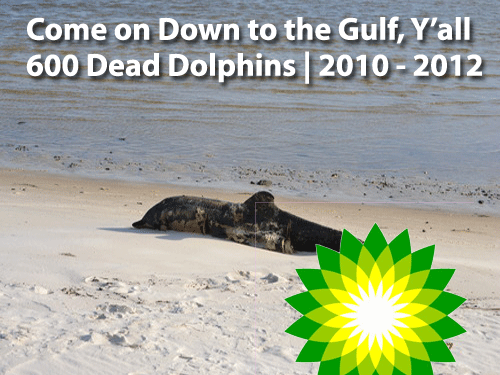Oil spills are long- and short-term disasters for both human and natural ecosystems.

As shown in a new study published in PNAS, the 2010 Deepwater Horizon catastrophe resulted in heart defects during the development of bluefin and yellowfin tunas. This study, a culmination of more than two decades of NOAA research on crude oil toxicity to fish early life stages, is important to understand the long-term effects of crude oil disasters on large predatory pelagic fish.
More recently, 29 dolphins were found dead in the area of the Galveston’s spill (168’00 gallons spilled) that occurred about 2 weeks ago, when a ship and barge collided. Scientists are now trying to find a link between both events. Although a larger number of dolphins are normally found dead between January and March (the so-called stranding season), we know that oil spill kills.
As stated by the main investigator:
Even though we cannot definitely say that oil has caused this increase in the number of strandings, we can say there is concern and will be concern and that is why we are increasing our level of investigation.











